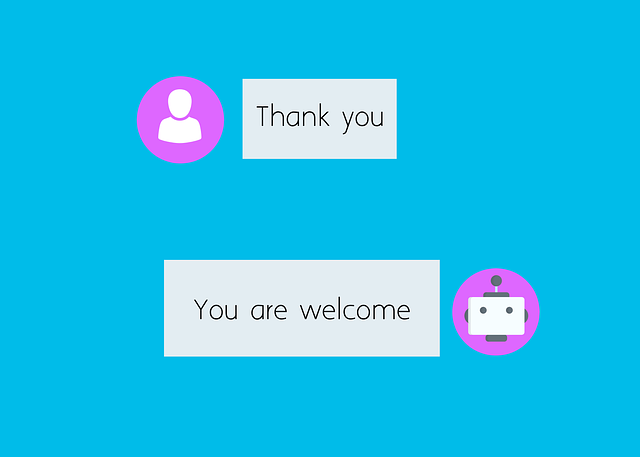Loyalty tags and triggers are essential tools for reputation management in automated customer funnels. Tags track interactions based on history, demographics, or behavior, enabling personalized marketing. Triggers initiate automated actions like text messages or social media offers to enhance engagement. By integrating these elements, businesses create dynamic funnels that adapt to customers' needs, strengthening relationships and driving repeat business through seamless automation and improved reputation. Analytics within marketing platforms are crucial for identifying areas of improvement in customer experience management.
In today’s digital landscape, fostering customer loyalty is paramount. Loyalty tags and triggers play a pivotal role in automated funnels, offering a strategic approach to enhance engagement and retention. This article delves into the fundamentals of loyalty tags, exploring their significance as building blocks within automated systems. We’ll also dissect the crucial role of triggers, providing insights on how they navigate the customer journey. Furthermore, we’ll uncover effective implementation strategies and measure success through robust reputation management for enhanced customer loyalty.
- Understanding Loyalty Tags: The Building Blocks
- Triggers and Their Role in Automated Funnels
- Implementing Tags to Enhance Customer Journey
- Measuring Success: Reputation Management Strategies
Understanding Loyalty Tags: The Building Blocks

Loyalty tags are a fundamental component of automated funnels designed to enhance reputation management for customer loyalty. These tags act as unique identifiers attached to specific customers or groups, allowing businesses to track their interactions and behaviors within the sales funnel. By implementing loyalty tags, companies gain valuable insights into customer preferences and engagement patterns, enabling them to personalize marketing strategies effectively. For instance, a tag could be assigned based on purchase history, demographics, or browsing behavior, facilitating targeted campaigns that resonate with each segment.
The power of loyalty tags lies in their ability to trigger automated actions. When a customer’s interactions match predefined criteria, triggers set off a series of events designed to foster engagement and retention. For example, a text message marketing campaign could be initiated when a loyal customer hasn’t made a purchase for a certain period. These triggers are not limited to purchases; they can also include social media marketing automation, such as sending personalized offers or coupons through relevant platforms based on user activity. By combining loyalty tags and triggers, businesses create dynamic sales funnels that adapt to customer needs, ultimately strengthening relationships and driving repeat business.
Triggers and Their Role in Automated Funnels

In automated funnels designed to nurture customer loyalty, triggers play a pivotal role by initiating specific actions at opportune moments during a customer’s journey. These triggers could be based on user behavior, time elapsed, or even geographic location, facilitating personalized interactions that enhance engagement and foster stronger connections. For instance, a missed call text back feature can be triggered when a customer reaches out but cannot be immediately attended to, offering prompt support and improving satisfaction levels.
Moreover, integrating triggers into automated funnels allows for effective reputation management for customer loyalty. By proactively addressing concerns or providing relevant information at critical junctures, businesses can mitigate potential negative experiences, turn them into positive ones, and ultimately strengthen customer relationships. Automation ensures that these interactions are seamless and consistent, contributing to a robust reputation management strategy that drives customer satisfaction and loyalty.
Implementing Tags to Enhance Customer Journey

Implementing tags to enhance customer journey is a strategic move that boosts reputation management for customer loyalty. These tags act as powerful identifiers, allowing businesses to categorize and track customer interactions throughout their automated funnels. By tagging customers based on demographics, purchase history, or specific interests, companies can tailor their communication strategies effectively. For instance, a retail brand could tag frequent shoppers as “VIP” and trigger exclusive offers via email or missed call text back, fostering a sense of exclusivity and appreciation.
Automation plays a pivotal role here, especially in social media marketing automation. By integrating loyalty tags with automated systems, businesses can seamlessly send personalized messages at just the right moment. A simple missed call text back could turn a casual browser into a loyal customer by offering them a special discount code or inviting them to join an exclusive community. This level of personalization not only strengthens the customer-brand relationship but also encourages word-of-mouth promotion, thereby amplifying the brand’s reputation and loyalty among its target audience.
Measuring Success: Reputation Management Strategies

Measuring success is a vital component of any automated funnel strategy, especially when it comes to reputation management for customer loyalty. By integrating analytics and tracking mechanisms within your marketing automation platforms, you can gain invaluable insights into customer behavior and sentiment. This data enables you to identify areas where improvements are needed to enhance the overall customer experience and foster stronger relationships. For instance, monitoring customer interactions with loyalty tags can reveal which incentives resonate best with different segments, allowing for more targeted and effective campaigns.
Moreover, a robust reputation management strategy in the context of customer relationship management (CRM) involves proactive engagement and responsive communication. Ecommerce solutions that incorporate automated feedback systems enable businesses to quickly address any concerns or complaints. Timely responses, personalized where possible, can turn potential negative experiences into positive ones, thereby solidifying customer loyalty. Additionally, leveraging social media monitoring tools can help brands stay attuned to public sentiment, enabling them to take swift action to mitigate risks and maintain a positive reputation in the digital landscape.
Loyalty tags and triggers are powerful tools in automated funnels, allowing businesses to create personalized journeys that strengthen customer relationships. By implementing these strategies, companies can effectively enhance reputation management for customer loyalty, fostering deeper engagement and driving long-term success. Understanding and leveraging these building blocks enables businesses to navigate the customer journey with precision, ultimately leaving a lasting positive impact.
